
Thomas Fuller ThomasFullerHistoric 94y
"We never know the worth of water till the well is dry."

"We never know the worth of water till the well is dry."
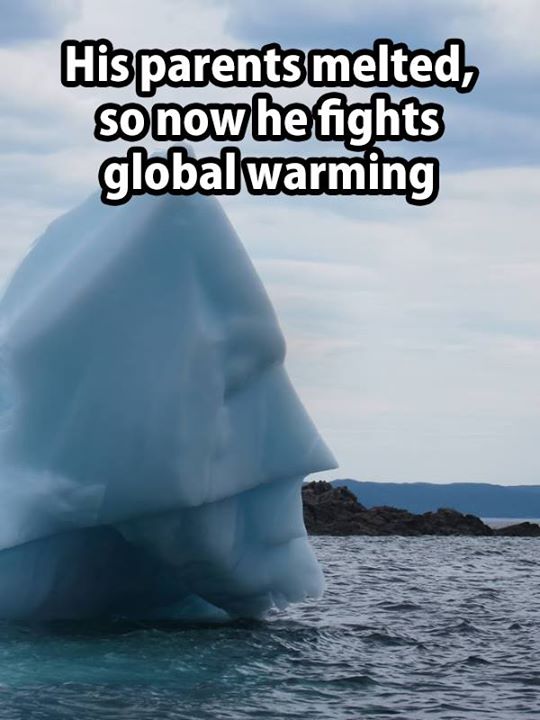
One enormous concern with our oceans that remains hidden beneath the surface (literally) is the amount of carbon, and global heating which the world's oceans can absorb. (link)
In terms of CO2 alone, at least 25% all the gas that humans have releases has been absorbed in the ocean. (link) Instead of slowing down, some evidence suggests that the amount of carbon sinking into the oceans is rising. (link) This might at first seem like a good thing. More carbon in the oceans means that less CO2 stays above us to heat the planet.
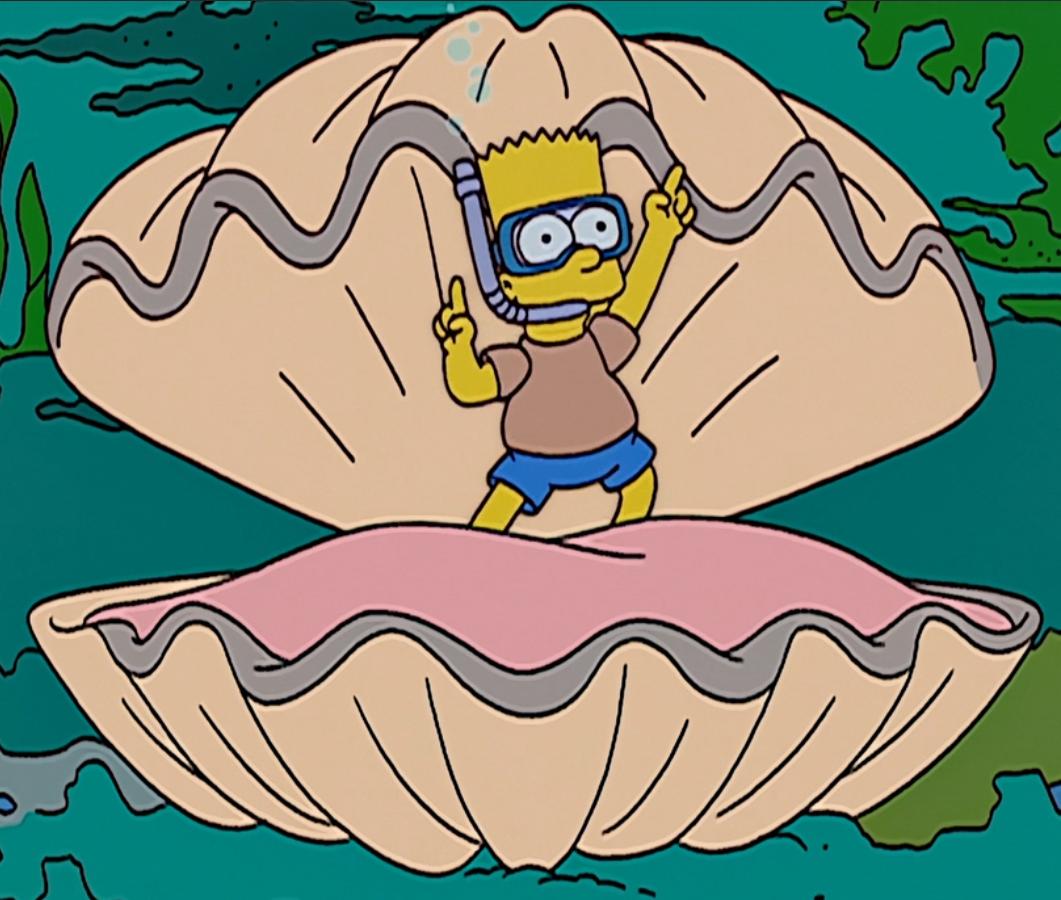
There there are two problems with this. First of all the change in acidity from carbon eats away at the shells of animals.
Secondly this leads to losses in oxygen which causes marine plants to die and that releases even more CO2 into the oceans and the air. (link) No matter how much is taken up though, eventually the oceans will become full.
You can just imagine the destruction that will happen when the oceans can’t soak up any more of the carbon emissions that we release every year.
On top of this issue is the fact that the surface of the ocean has been heating up for years. Since the greenhouse gases in the atmosphere don't allow heat to escape, it causes the ocean to get hotter.
This is the reason we have so many deadly storms and hurricanes these days.
Overfishing is a lot like budgeting our money. If we keep spending on credit, eventually we’re going to be left with a lot less than if we just cut back here and now. (link)
The sad truth is that not only is an ocean food source deadly to all the animals being captured, it’s also sadly devastating to thousands of other species that people don’t even want to harm. (link) (link)
For example the populations of predators that end up going hungry for lack of food themselves.
THen there is the issue of 'bykill.' This is where large commercial fishing operations capture huge volumes of fish in their nets. Only one out of five animals caught in these nets are actually sold, the rest is discarded as waste. As if this didn't create dangerous enough conditions, there are the thousands of nets which escape from fishing operations only to continue pointlessly trapping sea life until they eventually break down.
Even when the fishing nets break down they can still be harmful. Nearly half of all the plastic litter in the oceans comes from fishing.
In fact, if you are someone who eats seafood, there’s a good chance that your food contains thousands of bits of plastic which get embedded in your body. (link)
But thankfully, groups like the global ghost gear initiative help to encourage better practices which can reduce this threat to our safety. (link)
For many people the alternative to the above problems is aquaculture (fish farms). These days, the United States imports a whopping 60% of it’s fish and shellfish from farms.
Aquaculture is seen as the ideal solution. The reality however, is that raising fish in concentrated areas causes overloading of the ecosystem (think of breathing in an airtight room). This means that there is too much of a demand on critical things like oxygen that fish need. (link) (link)
When overloading happens, the area becomes “spent.” What was once thriving habitat for native species becomes unlivable. There are many other effects including escaping of genetically modified fish into the sea, as well as toxic elements released into the water. (link) (link) (link) (link)In Brazil, for example, so many areas have been overloaded that some operations have had to shut down. (link)
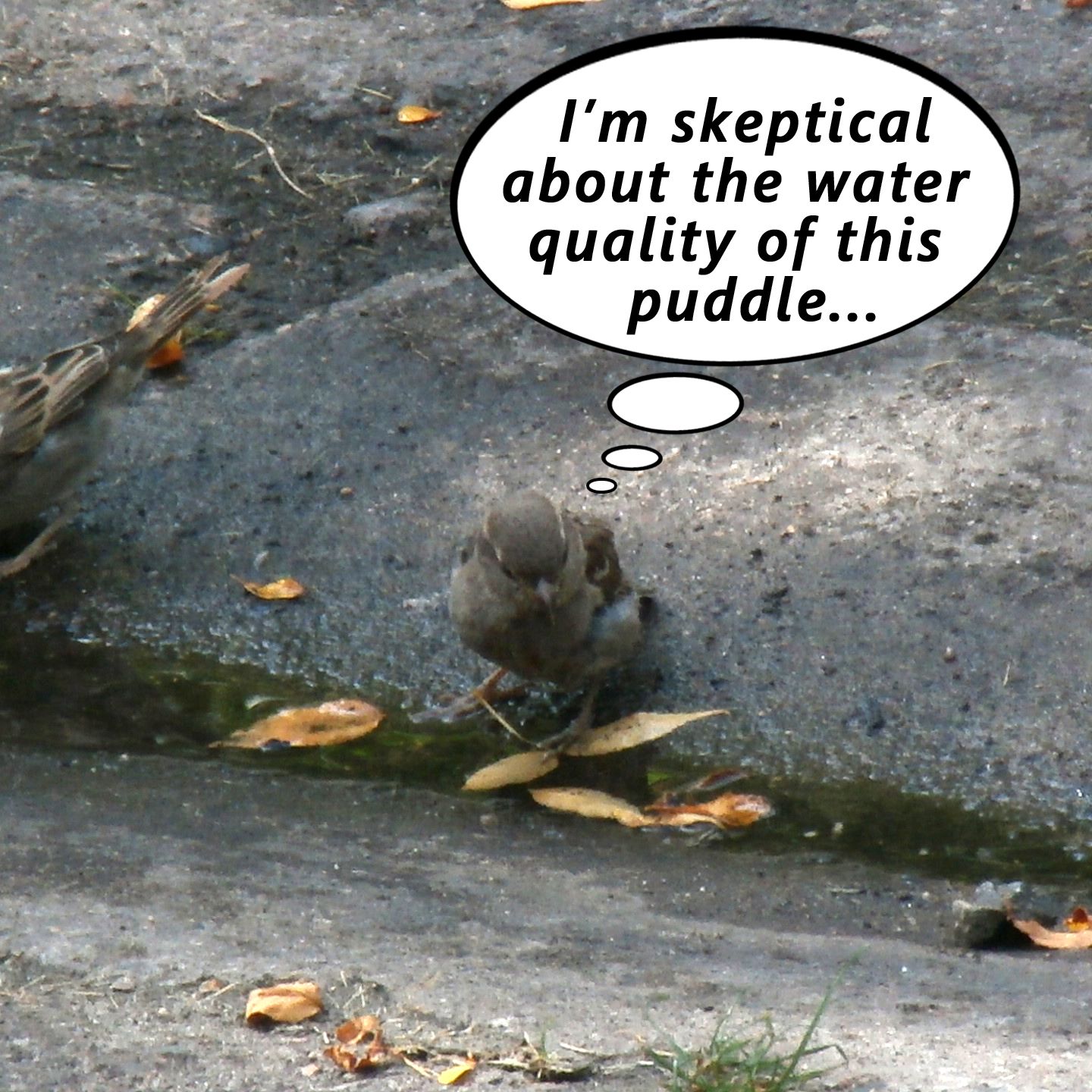
Water pollution is also a major issue to be aware of. You probably know that less then 1% of the trillions of gallons of water on the planet is fresh and available to us.
This is why the impact of polluting that water is such a critical concern. (link)
When people think of ocean pollution, they generally think of major oil spills like the BP explosion. But this is only a small part of a much larger problem. (link)
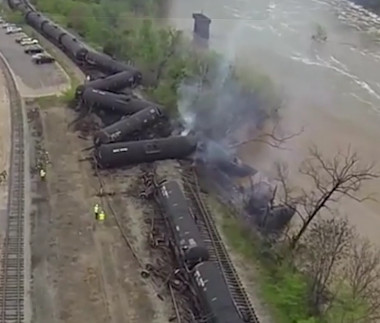
The fact is that pollution of our water supply occurs in many different forms... every day.
The enormous profits secured by multinational petroleum companies gives them the resources to fund brilliant PR campaigns or rebrand themselves. Their PR firms are highly skilled at downplaying the effects or even outright blocking oil spill events from the news entirely. (link) But thanks to the internet, we have new tools to discover information that remains hidden from corporate news shows.
For example, the big historical spills like the Exxon Valdez crash (estimated at 11-38 million gallons) don’t even make the list of the 10 largest oil spills in modern history.
However, what will no doubt surprise you is that these large oil spills make up less than 10 percent of the oil that humans leak into our oceans and waterways every day. (link) (link)
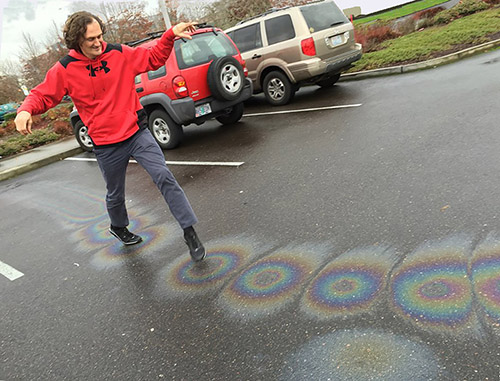
The largest source of oil spilt is that little black stain on an average driveway.
Oil which sits on pavement or in the storage tanks of gas stations will inevitably get washed into the nearest waterway by rain.
Every year oily road runoff from one single city of 5 million could add up to as much pollution as one large tanker spill. (link) (link)
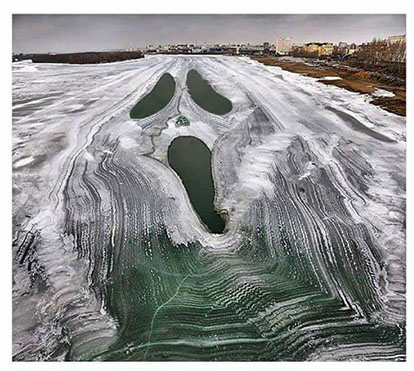
Given that a single litre of motor oil can pollute 1 million litres of water, (link) it’s so very important to use as little of the stuff as possible.
And it’s not just petroleum that gets washed into our waterways. Car tires and brake pads flake off bits of debris throughout their lifetime. This leaches toxic chemicals like styrene-butadiene which cause incredible harm to the oceans. (link)
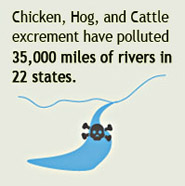
The meat industry also brings a great deal of harm to our natural waterways, either from fertilizers or animal waste.
The runoff from factory farms and the fertilizers used for growing animal feed cause gigantic algae blooms along river deltas.
The resulting ‘red tide’ has been linked with severe birth defects in humans (link) and with low oxygen-levels in the water. (link)
Tyson foods, one of the largest meat product producers in the U.S. releases more toxic pollution into North American waterways then even companies like ExxonMobil. The US EPA has estimated that almost half of America’s waterways are polluted, mainly due to runoff from animals on the farm. Something to think about the next time you go swimming or rafting.
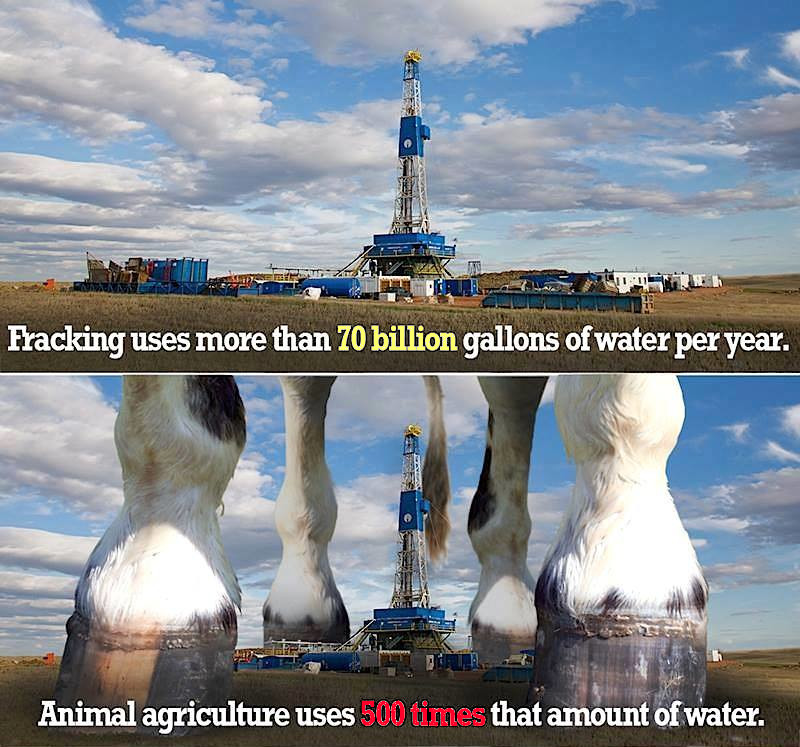
The last point that I would like to share with you here is about water use.
The ever more common droughts around the world are threatening thousands of people’s lives. (link) (link) Yet at the same time millions of gallons of water are used in oil exploration and for animals raised for food. (link) (link) This makes it difficult for small farmers to keep growing the food that we all need to stay alive.
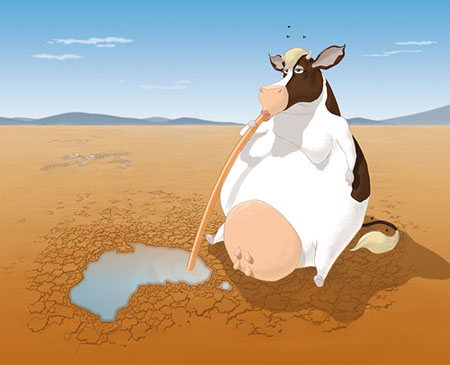
In the U.S. alone, animal-based foods consume between 25,000-466,000 cubic ft of water per ton. (link)
The latter is enough to cover the whole state of Georgia in 1m of water. That may be a tough thing to visualize. Thankfully the LA Times produced a very clever graphic to help us understand things. Simply put, roughly 1/3 of all water used to grow food goes to animals. (link)
As a result, the amount of food available per person has gone down by 17% between 1984 and 2004 in part because of water shortages. (link)
Fossil fuels on the other hand, use water mainly for drilling and fracking. It’s impossible to tell how much is used, because the companies simply refuse to tell us. In California, for every barrel of oil pulled out of the ground, a well produces 19 barrels of water polluted with chemicals like Benzene.
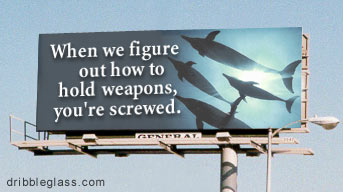
We may not be able to verify which camp has the higher impact on our shared supply of clean water.
But one thing that we do know that both oil use and farmed animals create massive and unnecessary damage. The compassionate path then, is simply to ditch both and enjoy a peaceful conscience and healthier life.